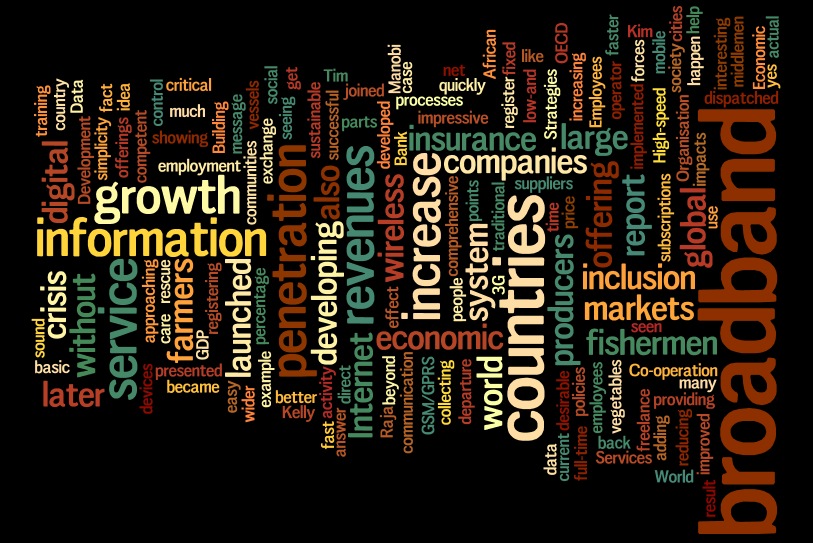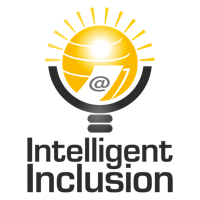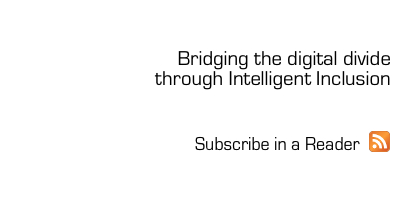
Whenever I start to talk to someone about digital inclusion, I always get the same initial questions: “Isn’t digital inclusion a social activity that governments do? Is that relevant in the current global economic crisis? Why should we care about it?”. I believe that people are not seeing the full picture, and I want to explain why.
As a result of the 2008 crisis, growth is back in the agenda of all countries in the world. Achieving sustainable growth is not only desirable, but also necessary to secure a long-term positive effect, and that cannot happen without an increase in efficiency. So, does digital inclusion help us on this matter? The answer is a sound yes.
In 2010, the World Bank published a comprehensive report called “Building broadband: Strategies and policies for the developing world”, authored by Yongsoo Kim, Tim Kelly, and Siddhartha Raja. In this report, they stated that, in low-and middle-income countries, every 10-percentage point increase in broadband penetration accelerates economic growth by 1.38 percentage points. They also mentioned that McKinsey & Company found that a 10 percent increase delivers a boost to a country’s GDP that ranges from 0.1 to 1.4 percent. How many sectors have a direct impact in the GDP like that? High-speed Internet allows companies to exchange information faster, optimizing processes and reducing bottlenecks; hire more competent employees, address markets beyond its traditional boundaries and do global sourcing of critical parts of their offerings. Employees have a wider pool of companies to apply for full-time employment or do freelance work, get training, network and engage with their communities.
So, information and communication technologies (ICT) truly enable a more efficient society. Let’s use a real example to illustrate this fact. Manobi is an African Mobile Data Services operator with an interesting case in Senegal. Back in 2003 they launched a remarkably easy service: collecting prices of vegetables in the large cities markets with a basic wireless application and passing this information as short message (SMS) to farmers. Despite its simplicity, by providing the market price to the actual producers, the service allowed the farmers to squeeze the middlemen and increase their revenues. The results were impressive: net revenues per hectare/year increased by over $2,200; small producers joined forces and became suppliers of large clients, increasing the revenues. The idea was so successful that they launched it later in South Africa, and also implemented a similar concept for fishermen. The fishermen service added a safety control: by registering their time of the departure, if they failed to register upon their return, the system quickly dispatched a rescue team. A few years later they improved the offering by adding GPS devices connected with GSM/GPRS, and now an insurance company is offering insurance for vessels equipped with the system. And doing it all without 3G or fast mobile broadband.
The impacts are not only seen in developing countries. In my last post, I presented data showing that the penetration of the Internet in most developed countries is below 80%; broadband is much worse, according to the Organisation for Economic Co-operation and Development (OECD)’s broadband portal, no country has more than 39% of fixed broadband penetration; wireless is better, approaching 100% subscriptions in some cases. The impact will be less dramatic, but higher than in most other industries.
So, what do you think?
Caetano Notari
Recommended Reading:
What is the status of global digital inclusion – global data showing the current numbers on digital inclusion
Why is digital inclusion essential? – quick analysis in the importance of digital inclusion
Graph Generated by Wordle


{ 1 comment… read it below or add one }
Hello,
I’m Omojuwa Omotola, founder and pioneer of an intitative “Reaching D Unbanked” in Nigeria. our focus is to bridge the gap between commercial banks and underbanked, unbanked settlement in the country as well to promote financial inclusion. I’ve read most of your articles and I must confess it has really help me in ways I can’t pay. Keep the good work, I’m hoping to connect with you
Regards
Omojuwa Omotola
2348077757065
You must log in to post a comment.
{ 4 trackbacks }